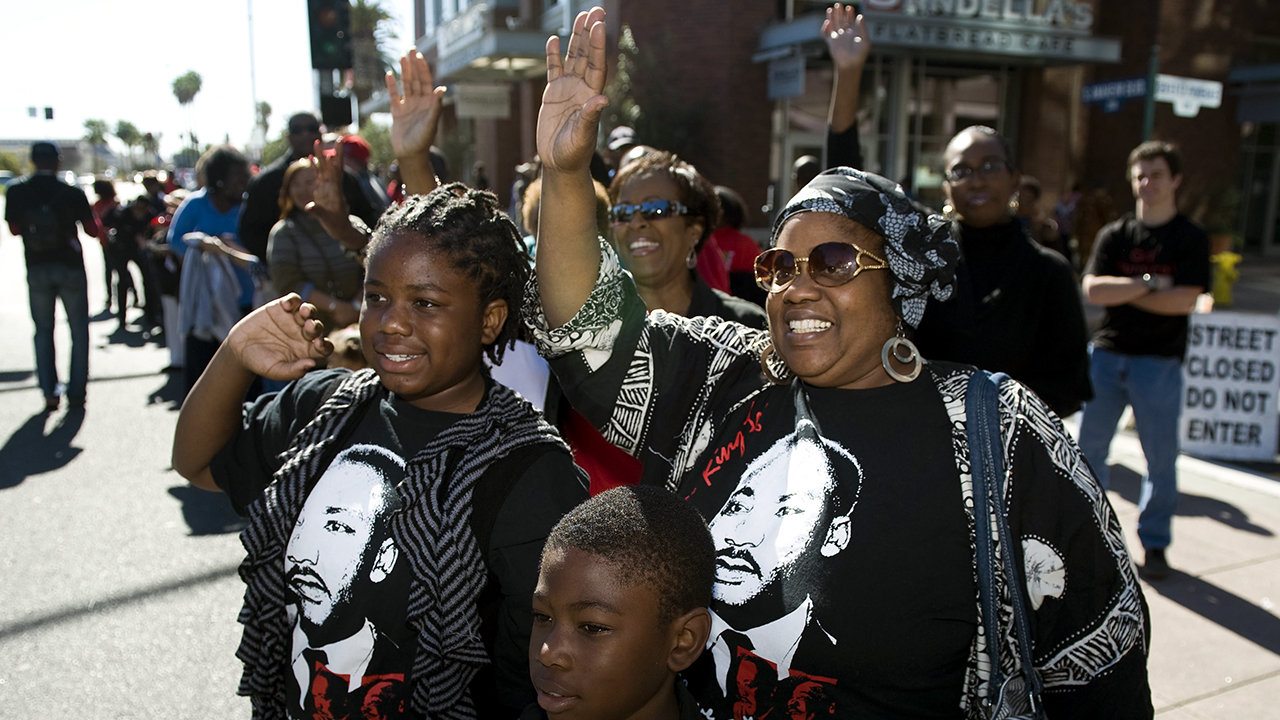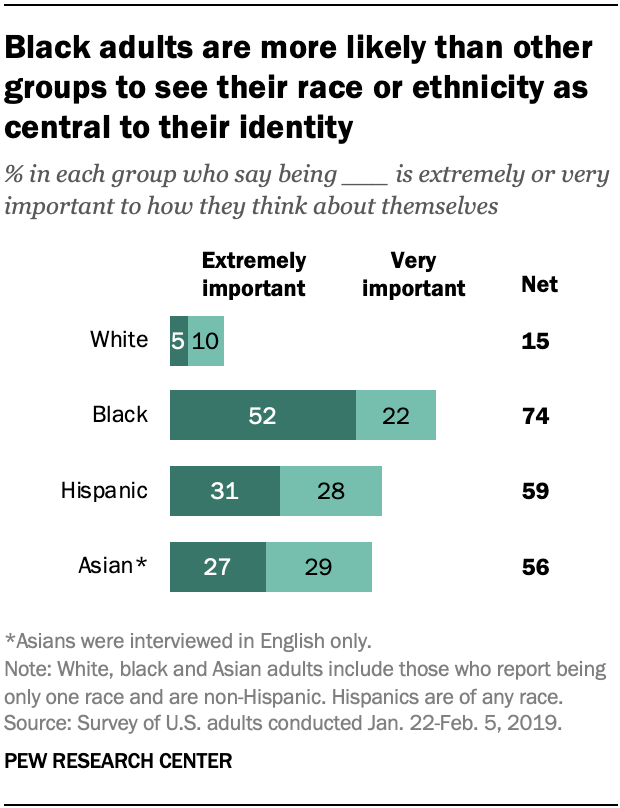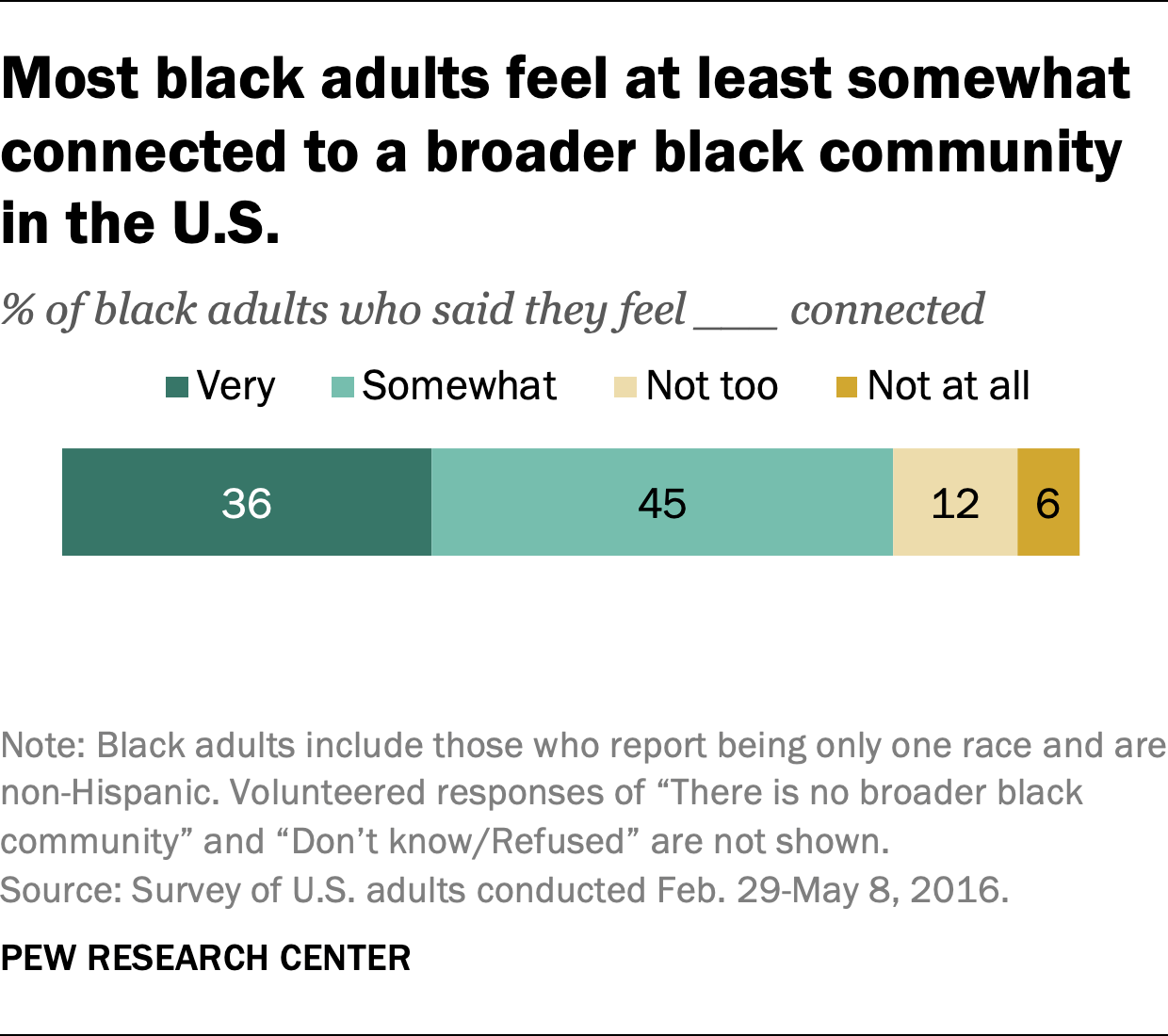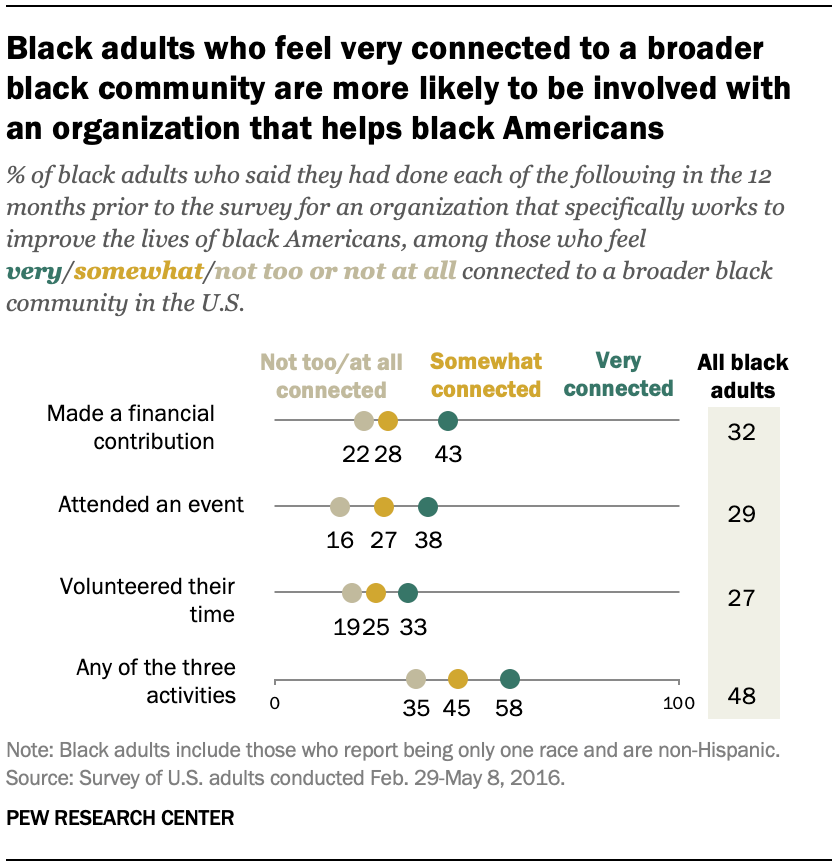

Black History Month, which is celebrated every year in February, honors the achievements of black Americans throughout history. It’s also a time to reflect on larger themes of identity and community. Findings from Pew Research Center surveys conducted in recent years show that most black adults feel that they are part of a broader black community in the United States and see their race as important to how they think of themselves.
About three-quarters of black adults say that being black is extremely (52%) or very (22%) important to how they think about themselves, according to a 2019 Pew Research Center survey. By comparison, about six-in-ten Hispanic (59%) and 56% of Asian adults say being Hispanic or Asian, respectively, is extremely or very important to their identity. Only 15% of white adults see race as a central piece of their identity. The share of black adults who say their race is central to their identity varies by age – adults younger than 30 deem race a less important part of their identity than do their older counterparts.
How we did this
The data for this post was drawn from two surveys. The most recent was a survey of 6,637 U.S. adults conducted Jan. 22 to Feb. 5, 2019. The adults who were surveyed are members of the American Trends Panel (ATP), an online survey panel that is recruited through national, random sampling of residential addresses. Recruiting our panelists by phone or mail ensures that nearly all U.S. adults have a chance of selection. This gives us confidence that any sample can represent the whole population (see our Methods 101 explainer on random sampling). The sample included oversamples of 530 non-Hispanic black and 508 Hispanic respondents sampled from the Ipsos KnowledgePanel, an online survey panel that is recruited through national, random sampling. The second survey was based on telephone interviews conducted Feb. 29 to May 8, 2016, among a national sample of 3,769 adults.
Here are the questions used for the 2019 report, along with responses, and its methodology.
Here are the questions used for the 2016 report, along with responses, and its methodology.

In addition, in a Pew Research Center survey conducted in 2016, most black adults (81%) said they felt at least somewhat connected to a broader black community in the U.S., including 36% who said they felt very connected to a black community. By contrast, 18% said they didn’t feel too connected or didn’t feel connected at all. This finding holds true across genders and age groups.
However, there are some differences by income and educational attainment. Black adults with annual family incomes of $30,000 or more are more likely than those with lower incomes to feel connected to a broader black community in the U.S. Similarly, those with at least a bachelor’s degree are more likely to feel connected than those with less education. Conversely, about one-in-five black adults with some college (18%) or with a high school diploma or less education (20%) said they feel not too connected or not at all connected to a broader black community, compared with 11% of black college graduates who said this. And about one-in-five (22%) black adults who have annual family incomes less than $30,000 said they feel disconnected from a broader black community. This number declines to 13% among those with incomes between $30,000 and $74,999 and to 12% for black adults with higher incomes.

Black adults who said they feel strongly connected to a broader black community are more likely than those who don’t to have engaged with organizations dedicated to improving the lives of black Americans by donating money, attending events or volunteering their time. About six-in-ten black adults who said they feel very connected to a broader black community (58%) said they have done at least one of these activities in the 12 months prior to the survey, compared with 45% among those who felt somewhat connected and 35% among those who said they feel not too or not at all connected to a broader black community.
